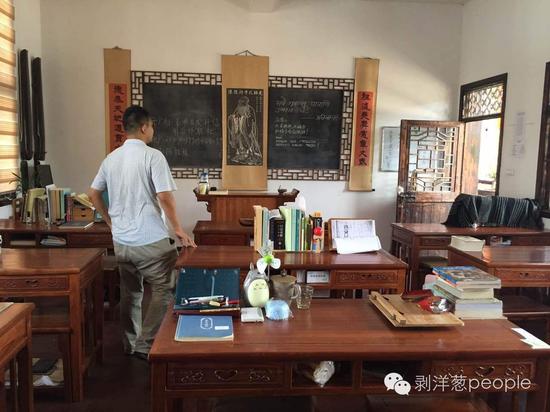Scripture hall education leaves lad in dead end
china.org.cn / chinagate.cn by Chen Boyuan, September 2, 2016 Adjust font size:
|
A teacher is seen at a classroom in Wenli Scripture Hall. [The Beijing News] |
An insider of the scripture hall education mode commented: "Looking back, it was a brutal experiment on those youngsters."
Zheng Weisheng, from Jinan, Shandong Province, was one of the students who found his public schooling experience far more difficult than most of his peers. He quit in 2008 when in fourth grade of primary school and thereafter spent the next nine years attending 10 different scripture halls in eight provinces. During those years, he lived deep in the mountains, with no electricity or internet connection, read scriptures for 10 hours each day amid a "reclusive life."
Zheng dropped out at a time when scripture reading was thriving in China, as this new education method claimed to establish the "essential spiritual home" for young students. Scripture halls claimed they could build a telepathic link between students and ancient Chinese great philosophers such as Confucius and Mencius, while parents hoped their children could grow up to match those ancient great minds.
Parents who sent their children to scripture halls generally were dissatisfied with, or even resented, public schools. In the eyes of Zheng's mother, Li Xuan, her son was suffering in school, and the fundamental reason was the public education system. It was around this time that she got to know about scripture halls, which assured her that education didn't have to be difficult, and that, by simple scripture reading, children could be shaped to become outstanding talents.
Zheng's first days in a scripture hall was interesting. The activities included text recitation, calligraphy, martial arts, and no homework at all. Zheng and his classmates felt it was "fun and something fresh." Zheng's mother, along with the parents of the other students, believed the scripture hall would not only teach knowledge but also provide a way to conduct oneself.
